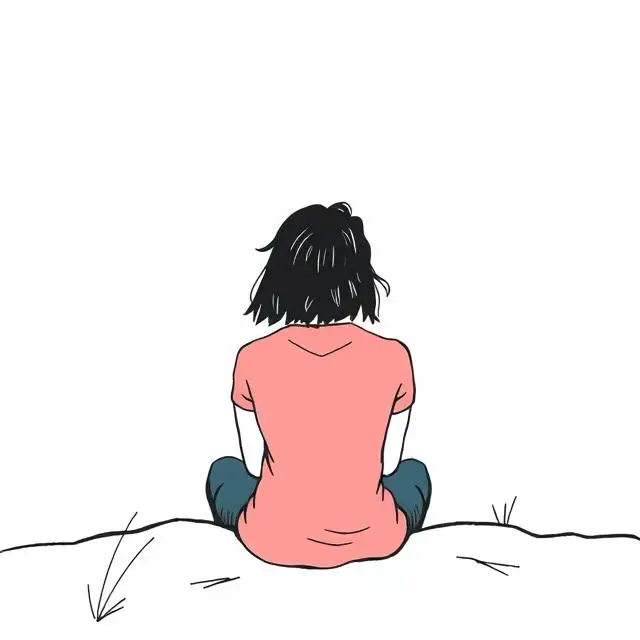Introduction: Emotionally Unavailable vs. Introverted Understanding the Key Differences
In today’s world, understanding the nuances of human behavior is crucial, especially when it comes to relationships. Two terms often confused with each other are “emotionally unavailable” and “introverted.” While both may appear similar at first glance, they have distinct meanings and implications, especially in relationships. Misunderstanding these terms can lead to misplaced expectations, frustration, and strained connections.
It’s important to distinguish between emotional unavailability and introversion to foster healthier interactions and avoid misconceptions that can negatively impact relationships. In this article, we’ll explore these concepts in-depth and break down the key differences between the two, offering practical advice for navigating relationships with emotionally unavailable and introverted individuals.
What Does It Mean to Be Emotionally Unavailable?
Emotional unavailability refers to an individual’s inability or unwillingness to engage with their own emotions and the emotions of others in a meaningful way. This detachment is not just about introversion but more about a lack of emotional depth or vulnerability in relationships. Emotionally unavailable people tend to shut down when it comes to discussing feelings, avoiding emotional intimacy, and sometimes even rejecting emotional connection altogether.
Signs of Emotionally Unavailable Individuals:
- Avoidance of deep conversations: They steer clear of discussing feelings, relationships, or other emotional topics.
- Limited empathy: They struggle to show or express empathy towards others.
- Commitment issues: They have difficulty committing or maintaining long-term relationships.
- Inconsistent communication: They might be hot and cold in relationships, leading to confusion and frustration.
- Self-protection: Often, emotional unavailability stems from a past trauma or emotional wounds, leading them to protect themselves from potential hurt.
Impact on Relationships:
Being in a relationship with someone who is emotionally unavailable can present significant challenges. There can be a sense of isolation, frustration, and confusion. Emotional connections are often shallow, leading to a lack of fulfillment for the partner seeking deeper emotional intimacy. Over time, these dynamics may create distance, resentment, and communication breakdowns.
What Does It Mean to Be Introverted?
Introversion, on the other hand, is a personality trait, not an emotional state. Introverts are individuals who naturally feel more comfortable in solitude or in small, intimate settings, rather than in large social gatherings. They gain energy from spending time alone and often feel drained after socializing in large groups.
Key Traits of Introverted Individuals:
- Enjoyment of solitude: Introverts thrive in environments that allow for quiet reflection and alone time.
- Small social circles: They typically prefer deep, meaningful relationships with a few close people, rather than wide social circles.
- Thoughtfulness and introspection: Introverts are often reflective, spending time thinking deeply about their thoughts and feelings.
- Reserved communication: They may not always initiate conversations or express themselves as freely as extroverts, but they can be quite insightful when they do.
Introversion vs. Shyness or Social Anxiety:
It’s essential to understand that introversion is distinct from shyness or social anxiety. While introverts might prefer smaller settings and feel drained after large social events, they are perfectly capable of engaging in social interactions when needed. Shyness and social anxiety, on the other hand, involve a fear of social situations and an overwhelming sense of discomfort in social settings, which is not necessarily the case for introverts.
Key Differences Between Emotionally Unavailable and Introverted Individuals
While both emotionally unavailable and introverted individuals may exhibit withdrawn behaviors, the underlying reasons for their behaviors differ. Here’s a comparison of their characteristics across different aspects:
1. Communication Styles:
- Emotionally unavailable: Avoids deep, emotional conversations and often shuts down when faced with vulnerability.
- Introverted: Prefers meaningful conversations with close friends but can engage in deep discussions when they feel comfortable.
2. Emotional Expression:
- Emotionally unavailable: Struggles with expressing or understanding their own emotions and tends to avoid emotional engagement.
- Introverted: May not readily express emotions in large groups but can be very expressive and emotional with close individuals.
3. Relationship Dynamics:
- Emotionally unavailable: Can create emotional distance, making relationships feel shallow or unsatisfying.
- Introverted: May need more time alone, but is usually capable of forming deep, meaningful connections in relationships.
4. Social Preferences:
- Emotionally unavailable: May actively avoid social situations to avoid facing emotional conversations.
- Introverted: Prefers quieter, smaller gatherings, and can enjoy socializing as long as it’s not too draining.

Common Misconceptions About Emotional Unavailability and Introversion
“Introverts are emotionally unavailable.”
This is a common myth, but it’s not accurate. Introverts are perfectly capable of being emotionally available. They might express themselves more privately or take longer to open up, but that doesn’t mean they are emotionally unavailable. In fact, many introverts value deep emotional connections once they feel safe and comfortable.
“Emotionally unavailable people are just introverted.”
This is another misconception. Emotional unavailability is about avoiding emotional connections, while introversion is simply a personality trait related to social energy. Emotional unavailability can occur in both introverts and extroverts, and it doesn’t always correlate with introversion.
Misunderstanding these differences can create frustration in relationships and prevent people from forming deeper connections. It’s essential to avoid these assumptions to maintain healthy dynamics.
How Emotional Unavailability Affects Relationships
Being involved with an emotionally unavailable person often leads to frustration and emotional distance. Communication becomes strained, and it may feel like one partner is constantly putting in effort while the other is emotionally absent. This can result in unmet emotional needs, misunderstandings, and a sense of loneliness, even within a relationship.
Example: If one partner avoids talking about difficult emotions or struggles to show affection, the other may feel neglected and unsupported, leading to tension.
How Introversion Affects Relationships
Introverts often form deep, meaningful relationships but might need more personal space than others. They might struggle in situations that demand constant social interaction, but they can be thoughtful and nurturing partners when they feel understood.
Strengths in relationships:
- Deep connections
- Thoughtfulness and reflection
- Loyalty and commitment
- Empathy, though expressed more subtly
Challenges:
- Need for personal space and alone time
- Potential miscommunication about social preferences
Can Introverts Be Emotionally Available?
Yes, introverts can absolutely be emotionally available. The key difference between introversion and emotional unavailability is that introverts value emotional depth and connection, but they tend to express it in quieter, more reserved ways. They may need more time to open up, but once they do, they can be deeply supportive and emotionally available partners.
Signs You’re Dealing with an Emotionally Unavailable Person
- Avoids emotional conversations
- Keeps a significant emotional distance
- Shows limited interest in long-term commitment
- Is inconsistent in showing affection or care
If you’re dealing with emotional unavailability, it’s important to address the issue with open communication, set boundaries, and determine whether the person is willing to work on their emotional engagement.
How to Support an Introverted Partner
- Honor their need for personal space and moments of tranquility.
- Encourage one-on-one communication rather than large group activities.
- Offer deep, thoughtful conversations instead of small talk.
- Be patient if they need time to process their thoughts or feelings.
How to Overcome Emotional Unavailability
If you recognize that you are emotionally unavailable, there are steps you can take:
- Seek therapy to address underlying emotional issues or past trauma.
- Engage in self-reflection to understand the root cause of your emotional avoidance.
- Practice open communication with your partner, and work on expressing your emotions in a healthy way.
Embracing Introversion: Why It’s Not a Flaw
Embracing introversion is a beautiful acknowledgment that being introverted is not a flaw but a unique strength. Introverts often possess profound thinking skills, creativity, and the ability to forge meaningful connections. In a world that frequently celebrates extroverted traits like sociability and assertiveness, introverts offer invaluable qualities such as active listening and thoughtful reflection.
By understanding and valuing introversion, individuals can harness their natural tendencies, crafting lives that resonate with their true selves. This embrace of introversion nurtures self-acceptance and fosters a deep appreciation for diverse personality types, creating spaces where introverts can flourish, free from the pressure to conform to extroverted ideals.
Conclusion: Emotionally Unavailable vs. Introverted Final Thoughts
Understanding the key differences between emotionally unavailable and introverted individuals is crucial for building healthy, supportive relationships. Introversion is about how people recharge and connect socially, while emotional unavailability relates to someone’s ability to engage emotionally with others. Recognizing these distinctions can prevent misunderstandings and foster stronger, more compassionate connections.
FAQs About Emotional Unavailability and Introversion
Q: Can an introvert become emotionally unavailable?
A: Yes, introverts can become emotionally unavailable, but it is typically due to personal issues, past trauma, or fear of vulnerability, rather than their introverted nature.
Q: How do I know if I’m emotionally unavailable?
A: Signs of emotional unavailability include avoiding emotional conversations, struggling to connect on a deep level, and maintaining a significant emotional distance in relationships.
Q: Is it possible to change emotional unavailability?
A: Yes, with self-awareness, therapy, and conscious effort to engage emotionally, individuals can overcome emotional unavailability.
By understanding these dynamics, you can navigate your relationships with greater clarity and compassion, whether you’re dealing with emotional unavailability or introversion.
